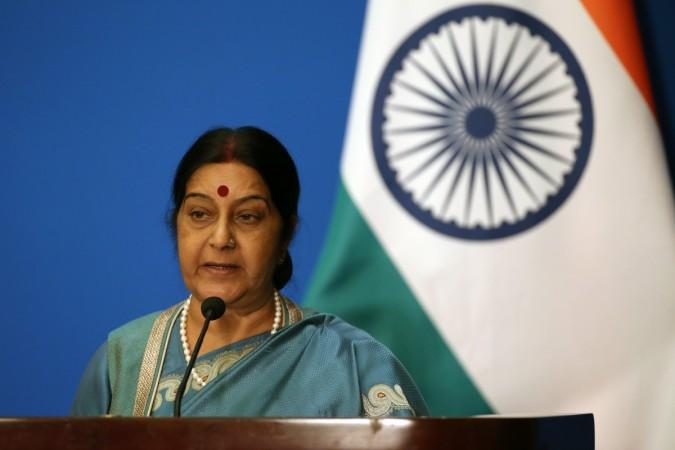India's External Affairs Minister Sushma Swaraj sought for investigations into North Korea's nuclear proliferation linkages in a veiled reference to Pakistan, asking to hold accountable those responsible for it.
The remarks were made by the Indian minister days after North Korea launched another ballistic missile which flew over Japan on Friday. The missile test was conducted before Pyongyang tested its sixth and most powerful nuclear weapon on September 3, in direct defiance to the sanctions imposed on the country by the United Nations (UN).
Swaraj is currently in New York to represent India at the annual United Nations General Assembly (UNGA) session. India is among the 120 countries who have extended their support to the UN Secretary General's reform efforts.

"External Affairs Minister Sushma Swaraj deplored North Korea's recent actions and stated that its proliferation linkages must be explored and those involved must be held accountable," the ministry spokesperson Raveesh Kumar said, according to Press Trust of India.
Swaraj reportedly made the statement during her trilateral meeting with the United States Secretary of State Rex Tillerson and Japanese Foreign Minister Taro Kono on Monday, on the sidelines of the ongoing UNGA session.
Kumar, however, did not specify which country Swaraj was referring to, but he added that the hints were enough to determine which nation was being talked about.
"I think I am giving you enough material to try to figure out what we are talking about," the spokesperson said.

"We have very clearly mentioned that we not only deplore DPRKs recent actions but also stated that its proliferation linkages must be explored and those involved be held accountable," Kumar stated.
Reports say that the three leaders, in addition to proliferation, also discussed the issue of maritime security and connectivity.
"Three broad issues were discussed -- maritime security connectivity and proliferation. We have spelled out what these heads mean on security the ministers emphasised the need to ensure freedom of navigation respect for international law and peaceful resolution of disputes," he said.
"On connectivity, there was a discussion on how to base them on universally recognised international norms prudent financing and respect for sovereignty and territorial integrity," Kumar said.















